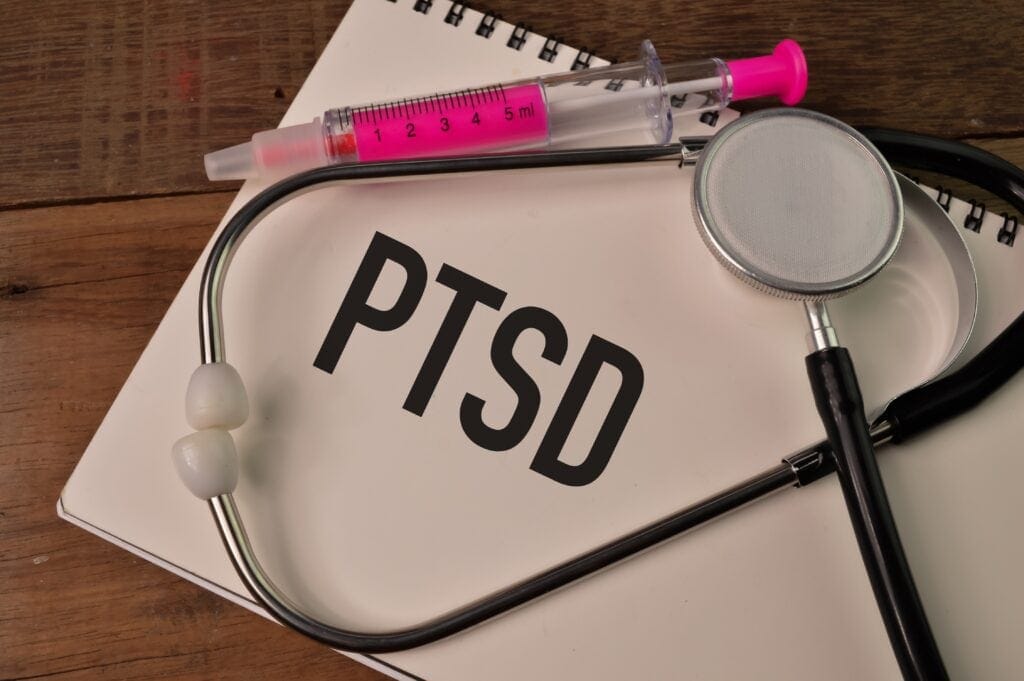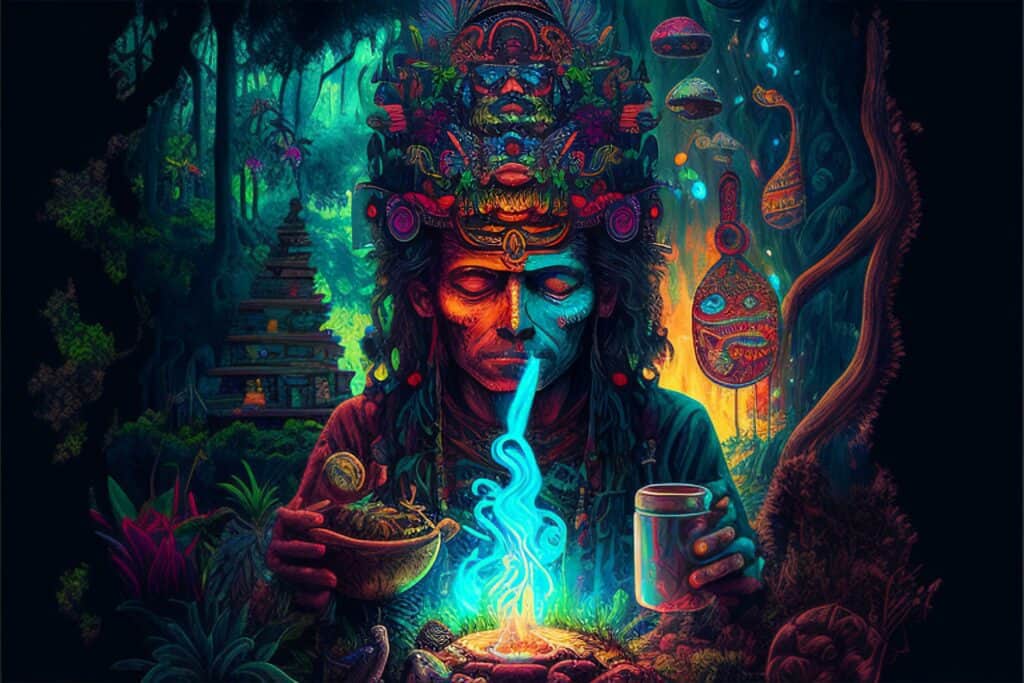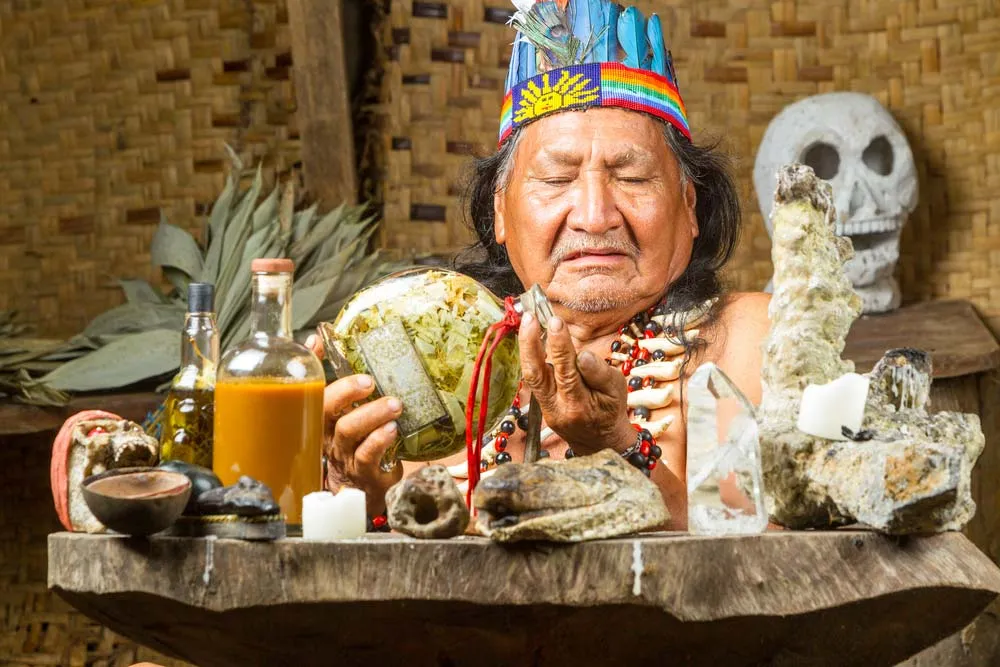Ayahuasca is a plant-based brew that has been used for centuries by indigenous people in the Amazon basin for medicinal and spiritual purposes. It contains the psychedelic compound DMT, which is known for inducing intense and profound hallucinations. In recent years, ayahuasca has gained popularity in Western countries as a potential treatment for drug addiction.
While there is limited scientific evidence to support the use of ayahuasca for addiction treatment, some studies have shown promising results. A 2013 observational study found that ayahuasca-assisted therapy was associated with significant reductions in drug use and other problematic behaviors among a group of Brazilian drug users. Another study conducted in Canada reported similar findings, with participants reporting reduced cravings and improved mood following ayahuasca ceremonies. Despite these positive results, more research is needed to fully understand the potential benefits and risks of ayahuasca for addiction treatment.
What is Ayahuasca?
Ayahuasca is a plant-based psychedelic drug that has been used for centuries by indigenous people in the Amazon Basin for medicinal and spiritual purposes. It is made by boiling the leaves of the Psychotria viridis plant and the stalks of the Banisteriopsis caapi vine, which contain the psychoactive compounds DMT and MAO inhibitors, respectively.
History of Ayahuasca
Ayahuasca has a long history of use in indigenous cultures in South America, particularly among the Shipibo, Ashaninka, and other tribes in the Amazon Basin. It is believed to have originated in the Amazon region and has been used for centuries for medicinal and spiritual purposes, including healing physical and psychological ailments, communicating with spirits, and gaining insight into the nature of the universe.
In recent years, ayahuasca has gained popularity in Western countries as a tool for personal growth, spiritual exploration, and even as a treatment for addiction and mental health disorders.
How Ayahuasca Works
The active ingredients in ayahuasca are DMT and MAO inhibitors. DMT is a potent hallucinogen that produces intense visual and sensory experiences, while MAO inhibitors prevent the breakdown of DMT in the body, allowing it to be absorbed and produce longer-lasting effects.
Ayahuasca is typically consumed in a ceremonial setting under the guidance of an experienced shaman or facilitator. The effects of ayahuasca can last for several hours and may include intense visual and sensory experiences, emotional release, and profound insights.
While the exact mechanisms of ayahuasca’s therapeutic effects are not fully understood, research suggests that it may help to promote neuroplasticity, increase mindfulness, and reduce symptoms of depression, anxiety, and addiction.
It is important to note that ayahuasca can also produce negative side effects, including nausea, vomiting, and psychological distress, and should only be used under the guidance of a trained professional in a safe and supportive environment.
Drug Addiction
Drug addiction is a chronic and relapsing disease that affects millions of people worldwide. It is characterized by compulsive drug seeking and use, despite the harmful consequences. Addiction is not a choice or a moral failing, but rather a complex disorder that can be caused by a variety of factors, including genetics, environment, and personal circumstances.
Causes of Drug Addiction
There is no single cause of drug addiction, but rather a combination of factors that can increase the risk of developing this disorder. Some of the most common causes of drug addiction include:
- Genetics: Studies have shown that genetics can play a role in addiction, as some people may be more predisposed to developing this disorder due to their genetic makeup.
- Environment: Environmental factors, such as exposure to drugs at an early age, peer pressure, and stress, can also increase the risk of addiction.
- Mental health: People with mental health disorders, such as depression, anxiety, or PTSD, may be more likely to turn to drugs as a way to cope with their symptoms.
Effects of Drug Addiction
Drug addiction can have a profound impact on a person’s life, affecting their physical, mental, and social well-being. Some of the most common effects of drug addiction include:
- Physical health problems: Drug addiction can lead to a range of physical health problems, including heart disease, liver damage, and respiratory problems.
- Mental health problems: People with drug addiction are also at an increased risk of developing mental health problems, such as depression, anxiety, and psychosis.
- Social problems: Drug addiction can also have a negative impact on a person’s social life, leading to strained relationships, loss of employment, and financial problems.
Overall, drug addiction is a complex disorder that can have a profound impact on a person’s life. While there is no cure for addiction, there are treatments available that can help people manage their symptoms and achieve long-term recovery.
Ayahuasca as a Treatment for Drug Addiction
Ayahuasca, a traditional Amazonian plant medicine, has gained attention in recent years as a potential treatment for drug addiction. While research on the subject is limited, studies have shown promising results in using ayahuasca to help individuals overcome substance abuse disorders.
Research on Ayahuasca for Drug Addiction
One study conducted by Dr. Jacques Mabit, who runs an addiction clinic in Peru, found that ayahuasca was effective in reducing drug and alcohol use among participants. The study also reported that ayahuasca increased intellectual capacity and concentration, reduced anxiety, and improved self-esteem.
Another study published in the Journal of Psychoactive Drugs found that ayahuasca was effective in reducing the severity of addiction and substance use disorders. The study also reported that participants experienced improved emotional stability and a greater sense of purpose in life.
How Ayahuasca Helps with Drug Addiction
Ayahuasca is thought to help with drug addiction by providing individuals with a new perspective on their lives and the underlying issues that led to their substance abuse. The experience of taking ayahuasca is often described as a journey of self-discovery and introspection, during which individuals may gain insights into their past traumas or emotional wounds.
Additionally, ayahuasca is believed to have a neuroprotective effect on the brain, which can help to repair damage caused by drug abuse. Ayahuasca also stimulates the release of serotonin and other neurotransmitters, which can improve mood and reduce cravings for drugs.
While ayahuasca shows promise as a treatment for drug addiction, it is important to note that it is not a magic cure. It should only be used under the guidance of a trained shaman or healthcare professional, and as part of a comprehensive treatment plan that includes therapy and other forms of support.
Risks and Side Effects of Ayahuasca
Ayahuasca is a powerful psychoactive brew that has been used for centuries by indigenous people in the Amazon basin for spiritual and medicinal purposes. However, it is important to be aware of the potential risks and side effects associated with its use.
Potential Risks of Ayahuasca Use
- Psychological Risks: Ayahuasca can cause intense psychological experiences that may be overwhelming or disturbing. Some users may experience paranoia, anxiety, or panic attacks during the trip. People with a history of mental health issues should be cautious when considering ayahuasca.
- Physical Risks: Ayahuasca can cause physical side effects such as vomiting, diarrhea, and increased heart rate and blood pressure. People with pre-existing medical conditions, such as heart disease or high blood pressure, should avoid using ayahuasca.
- Interactions with Medications: Ayahuasca can interact with certain medications, including antidepressants, antipsychotics, and MAO inhibitors. These interactions can be dangerous and potentially life-threatening.
Side Effects of Ayahuasca
- Vomiting and Diarrhea: Nearly all users of ayahuasca will experience intense vomiting and diarrhea, which is considered a part of the ceremony. These side effects can be unpleasant and may cause dehydration and electrolyte imbalances.
- Visual and Auditory Hallucinations: Ayahuasca can cause intense visual and auditory hallucinations, which can be both positive and negative. Some users may experience frightening or disturbing hallucinations, which can lead to anxiety or panic.
- Increased Heart Rate and Blood Pressure: Ayahuasca can increase heart rate and blood pressure, which can be dangerous for people with pre-existing medical conditions.
It is important to note that the risks and side effects of ayahuasca use can vary depending on the individual and the setting in which it is used. Proper preparation, guidance, and medical supervision can help minimize the risks associated with ayahuasca use.
Legal Status of Ayahuasca
Ayahuasca, a psychoactive brew made from the ayahuasca vine and other plants, has been used for centuries in traditional Amazonian medicine. However, its legality in different countries varies widely. This section will provide an overview of the legal status of ayahuasca worldwide and the legal issues surrounding its use.
Ayahuasca Legality in Different Countries
In the United States, ayahuasca is considered a Schedule I drug, which means it is illegal to manufacture, distribute, or possess. However, there are some exceptions for religious use. The União do Vegetal (UDV) and Santo Daime churches have been granted exemptions by the US government to use ayahuasca as part of their religious practices.
In Canada, ayahuasca is not specifically listed as a controlled substance, but the DMT it contains is. DMT is a Schedule III substance, which means it is illegal to possess or produce without a license. However, the legal status of ayahuasca remains unclear in Canada.
In South American countries where ayahuasca is traditionally used, such as Peru and Brazil, it is legal for religious and cultural purposes. However, the use of ayahuasca for non-traditional purposes, such as drug addiction treatment, is not legal.
Legal Issues Surrounding Ayahuasca Use
One of the main legal issues surrounding ayahuasca use is the potential for harm. Ayahuasca can have serious physical and psychological effects, and there have been reports of deaths and injuries associated with its use. Additionally, the use of ayahuasca in non-traditional settings, such as drug addiction treatment, is often unregulated and can be risky.
Another legal issue is the protection of indigenous knowledge and intellectual property. The traditional use of ayahuasca is an important part of indigenous culture, and there have been concerns about the exploitation of this knowledge by non-indigenous people and companies.
In conclusion, the legal status of ayahuasca varies widely depending on the country and context. While some religious groups have been granted exemptions, the use of ayahuasca for non-traditional purposes remains illegal in many places. Additionally, there are legal issues surrounding the potential for harm and the protection of indigenous knowledge.
Conclusion
Ayahuasca is a plant-based psychoactive brew that has been used traditionally in shamanic rituals in the Amazon region. Recently, ayahuasca has gained attention as a potential treatment for drug addiction. The pharmacology and neuroscience of ayahuasca are complex, and the psychological mechanisms underlying its therapeutic potential are not yet fully understood. However, several studies suggest that ayahuasca may be useful for treating various psychiatric disorders and addictions.
One study reported that ayahuasca intake increases certain neuroplasticity markers, which may be associated with the therapeutic effects of the brew. Another study found that ayahuasca-assisted therapy was associated with significant improvements in depression and anxiety symptoms in patients with treatment-resistant depression. Additionally, some addiction clinics in Peru use ayahuasca as a part of their treatment, reporting many positive outcomes.
However, evidence for the effectiveness of ayahuasca in treating drug addiction is still weak, fragmentary, and disperse. More research is needed to determine the safety and efficacy of ayahuasca as a treatment for addiction. Furthermore, ayahuasca is not legal in many countries, and its use can be associated with various risks, including psychological distress, adverse physical effects, and interactions with other medications.
In conclusion, while ayahuasca may hold potential as a treatment for drug addiction, more research is needed to determine its safety and efficacy. It is important to approach the use of ayahuasca with caution and to seek professional guidance from experienced practitioners.






